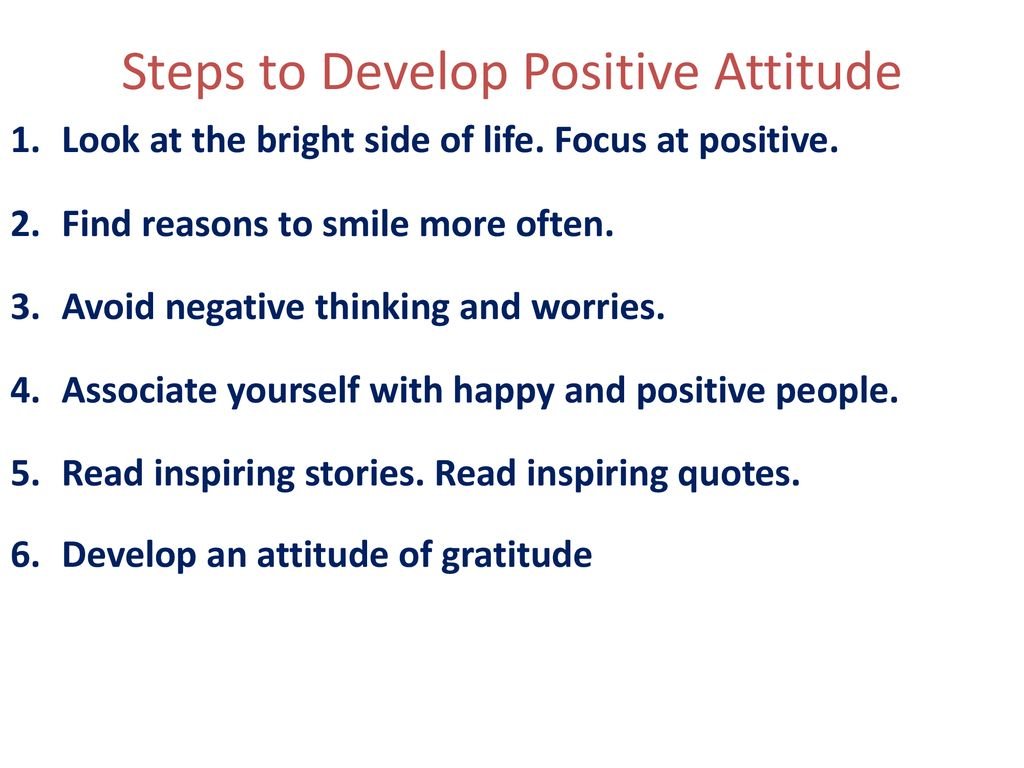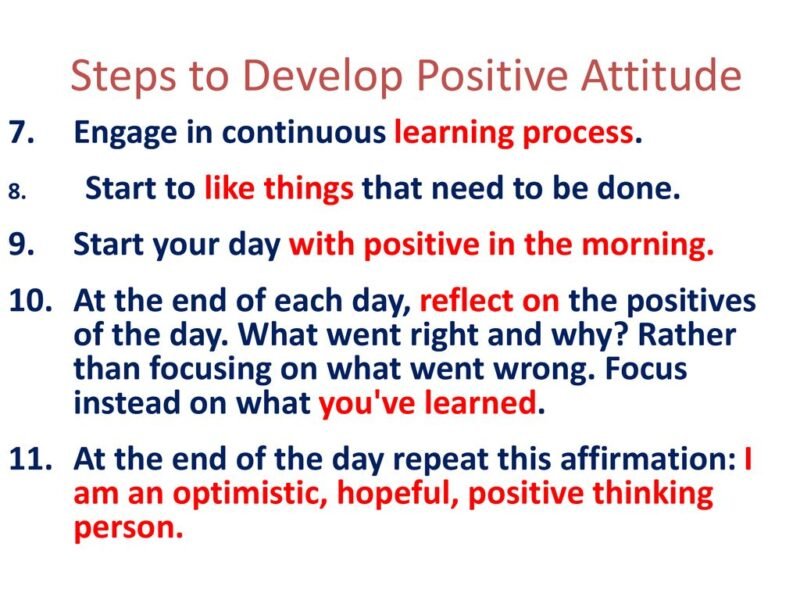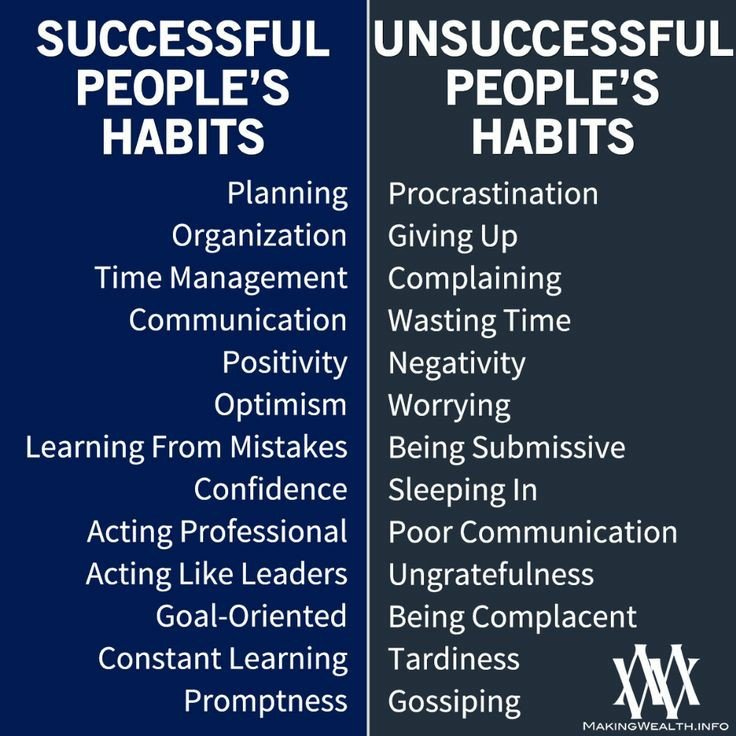How to Build a Positive Attitude? 5 Best Methods to Understanding the Importance of a Positive Attitude
How to Build a Positive Attitude? A positive attitude is important for ensuring that you have a fulfilling and enjoyable life. Building a positive attitude will make it easier for you to recognize and reflect on positive emotions as you experience them. You will also start reframing negative emotions in the moment that they begin to occur. Taking time for yourself and cultivating relationships are important components of building a positive attitude.

Method 1 of 5: Understanding the Importance of a Positive Attitude
Understand that a positive attitude will reduce negative emotions.
- Having a positive attitude will help you experience plenty of positive emotions.
- These are moments when you’re not bogged down by negative emotions.
- A positive attitude can help you find more fulfillment and enjoyment in life.
- It can also help you recover from negative experiences more quickly.
Recognize the link between positive emotions and physical health.
- Research suggests that stress and other negative emotions can contribute to health issues such as coronary heart disease.
- Replacing negative emotions with positive ones can improve your overall well-being.
Positive emotions can also slow progression toward disease.
- This happens because positive emotions shorten the duration of negative emotional arousal.
Link positivity, creativity and attention.
- In addition to physical benefits, a positive attitude produces a “broad, flexible cognitive organization and ability to integrate diverse material.”
- These effects are linked to increases in neural dopamine levels, which improve your attention, creativity, and ability to learn.
- Positive emotions also improve a person’s ability to cope with difficult situations.
Recover from negative life events more quickly.
- Building and maintaining a positive attitude can help you be more resilient to negative life events such as trauma and loss.
- People who experience positive emotions during bereavement tend to develop healthy long-term plans.
- Having goals and plans may result in an overall better sense of well-being about a year after bereavement.
- In an experiment on emotional resilience and stress responses, participants were given a stressful task to complete.
- The results showed that all participants were anxious about the task, regardless of how naturally resilient they were.
- But the more resilient participants returned to a calmer state more quickly than the participants who were not as resilient.


Method 1 Quiz: Why is a positive attitude important to good health?
Positive people are more likely to go to the doctor for check ups.
Positive people experience less stress, which lowers their risk of illness.
And also Positive people exercise more often so they are healthier.
Positive people have more friends who will encourage you to stay healthy.
Method 2 of 5: Taking Time for Self-Reflection
Recognize that change takes time.
- Think of building a positive attitude in the same way that you think of building strength or developing fitness.
- It’s an endeavor that takes consistent effort.
Identify and nurture your strongest qualities.
- Focus on your strengths to help create more positive emotional experiences.
- In turn, this will make handling adversity easier.
- Make a list of things you enjoy doing or things you’re good at.
- Try to do some of these things regularly.
- This will build up your reserve of positive experiences.
Write in a journal.
- Studies show that self-reflection can be an effective learning and teaching tool in school and work settings.
- Self-reflection can be used to help develop a positive attitude as well.
- Writing down your feelings and thoughts can help you recognize your behaviors and responses.
- At first, it might seem strange or awkward to write self-reflections.
- But with time and practice, you’ll recognize some behavior and emotional patterns in your writing.
- This will help you target areas that may be blocking you from your goals.
Write about positive things in your day.
- Review the day and find positive things about it.
- These can include things that made you happy, proud, awestruck, grateful, calm, content, pleased, or any other positive emotion.
- For example, recall your morning routine, and spend time noticing the moments you felt peaceful or happy.
- This might include a beautiful view along your morning commute, or the pleasure of your first sip of coffee, or an enjoyable conversation you had.
- Take special time to focus on moments where you felt proud of yourself or grateful to someone else.
- These can be small things, such as gratitude for your partner making the bed.
- You might also take pride in the way you accomplished a task or completed a challenge you set for yourself.
- You may find it helpful to start your reflections with the positive moments of your day.
- Re-experiencing positive emotions can help you adjust your perspective on the negative moments.
Write about moments when you had negative emotions.
- Identify moments in your day when you experienced negative emotions.
- These might include guilt, shame, embarrassment, frustration, disappointment, fear, or disgust.
Do any of these thoughts seem extreme?
- Perhaps you are mortified for spilling coffee on your boss.
- Do you think that you’ll be fired because of the incident and you’ll never be able to find a job again?
- Extreme reactions to everyday occurrences can block more positive, productive thinking.
Reframe negative moments as positive ones.
Look over your list of negative moments.
- Spend time reframing these moments in a way where you can get positive (or at least neutral) emotions out of these experiences.
- For example,
- if you experienced road rage on your drive home, reframe the other driver’s intentions as making an honest mistake.
- If you felt embarrassed about something that happened during the day, think about how it was actually a silly or laughable situation.
- Even if your boss was upset about having coffee spilled on him, mistakes happen from time to time.
- With any luck, maybe your boss will see the humor in it also.
- If you don’t treat smaller mistakes as life-altering experiences, you will be able to handle situations better.
- One way to handle the coffee situation is to express your genuine concern that your boss is first and foremost okay and that you didn’t burn him.
- Next, you can offer to go buy him another shirt on your lunch hour, or offer to dry-clean the stained one.
Draw on your “happiness reserves.”
- Enhanced coping skills lead to increased positive emotions over time.
- The benefits you receive from experiencing positive emotions are durable.
- They last far longer than the amount of time you experience happiness.
- You can draw on these “happiness reserves” at later moments and different emotional states.
- Don’t worry if you feel you’re having trouble building positive emotional experiences.
- You can also use the memories you already have to build your “happiness reserves.”
Remember that everyone experiences life issues.
- It’s important to remember that everyone goes through both little and huge life issues, so you’re not alone.
- Reframing your extreme reactions does take practice, as well as time to adjust and accept.
- But with practice, it is possible that you can let go of little things.
- You’ll be able to look at the larger issues with a level head and see them as opportunities to learn.
Tame your inner critic.
- Your “inner critic” can hurt your progress in building a positive attitude.
- For example, perhaps your inner critic called you a dummy for spilling coffee on your boss.
- Your inner critic puts you down all the time and is nasty to you.
- Reflect on the times your inner critic says things like this.
- You will gain more insight into the times and situations when your inner critic comes out.
- Also, you can start to challenge the inner critic and other negative ways of thinking.
- This is an important part of building a positive attitude.
Method 2 Quiz: Your boyfriend broke up with you. How can you reframe this experience in a more positive light?
- “No one has to know that he dumped me. I’ll tell everyone that I broke up with him.”
- “I can improve myself and then he’ll take me back.”
- “If my boyfriend didn’t appreciate me, then he wasn’t the right guy for me.
- I’m one step closer to finding a better partner.”
Method 3 of 5: Taking Time for Yourself
Do things you enjoy.
- Take time for yourself by doing things you enjoy or that make you happy.
- It can be hard to take time for yourself, especially if you’re someone who tends to put other people first.
- It might also be challenging if you have a life situation such as having small children at home or taking care of someone who is ill.
- But always remember to “secure your own oxygen mask before assisting others.”
- You are the best caretaker when you are your best self.
- If music makes you happy, listen to music.
- If reading books makes you happy, take a little time to read in a calm environment.
- Go look at a beautiful view, take yourself to a museum, or watch a movie that you enjoy.
- Stay active doing the things that bring you pleasure.
- This is a great way to focus on the positive.
Take time to think about moments of satisfaction.
- No one else is watching or judging your review of your day and yourself, so there’s no need to worry about seeming arrogant.
- You don’t have to be good at something or please others in order to enjoy it.
- If you’re good at cooking, admit to yourself that you’re a talented cook.
- Likewise, you don’t need to be able to charm woodland creatures in order to enjoy singing.
- Observing moments of satisfaction, pride, contentment or joy in your life and the activities that cause them is a good way to make sure you can repeat them again in the future.
Worry less about others.
- You are not like other people, so there’s little reason to judge yourself based on other people’s standards.
- You may enjoy things that other people don’t enjoy.
- And You are certainly “allowed” to define for yourself what success means for your life.
Avoid comparing yourself to other people.
- Your view of yourself is very different from your view of other people, just as viewing a Monet painting from one foot away is very different from viewing it from twenty feet away.
- Realize that the image of someone else that you see may be a contrived image that he or she strives to project.
- This image may only partially reflect reality.
- Let go of measuring yourself against other people and basing your self-worth on other people’s opinions.
- This will help you make less subjective inferences about other people’s behavior.
- For example, if you have a negative interaction with a casual acquaintance, don’t assume that they don’t like you.
- Rather, assume that there was a miscommunication between the two of you, or that something else is frustrating your acquaintance.
Method 3 Quiz: Why should you acknowledge your gifts and skills?
To improve your confidence
To impress others
And To get even better at them
To get healthier
Method 4 of 5: Cultivating Relationships
Maintain healthy relationships.
- Relationships are an important part of the human experience, even if you classify yourself as an “introvert,” or someone who recharges by being alone and doesn’t feel the need for a large number of friends.
- Friendships and relationships are a source of support, validation and strength for all genders and personalities.
- Maintain healthy relationships in your life with family members and friends.
- Research demonstrates that your mood can immediately improve after having a conversation with someone you care about and you receive a supportive response from them.
Form new relationships.
- As you meet new people, identify the ones who make you feel good to be around.
- Cultivate relationships with them.
- These people will add to your support network and help you continue building a positive attitude.
Talk about your emotions with a friend.
- If you find yourself having difficulty creating positive emotional experiences on your own, turn to a friend for support.
- You shouldn’t feel like you have to bury your negative emotions.
- Instead, talking them through with a friend helps you resolve them and make room for happier emotions.
Method 4 Quiz: How can you tell whether you should pursue a new friendship?
Your new friend has a lot of social connections.
Your new friend makes you laugh.
And Your new friend is carefree and doesn’t get too personal.
Your new friend gives you advice on how to improve.
Your new friend is someone you aspire to be like.
Method 5 of 5: Handling Stressful Situations
Put a positive spin on a stressful circumstance.
- Positively reappraising a stressful circumstance means taking that situation and putting a new spin on it.
- For example, if you have a daunting to-do list, rather than looking at your list and saying,
- “There’s no way I can get all of this done,” try saying, “I can accomplish most of this.”
Try problem-focused coping.
- Problem-focused coping is where you focus on the problem that is causing you stress and work out its solution.
- Break down the problem into steps that will allow you to accomplish it.
- Identify potential hurdles or stumbling blocks and decide how you will deal with them as they arise.
- For instance, if you are having trouble getting a team of coworkers to work well together, sit down first and analyze the situation.
- Identify the types of situations going on.
- Then brainstorm and write down possible solutions for these problems.
- For example, Jeff doesn’t like Sally, and your employer doesn’t encourage teamwork and instead rewards the efforts of the individual.
- Using problem-focused coping, you should assert that, while Jeff and Sally are allowed to not like each other, a standard of professional conduct is expected and reinforce those standards.
- Then do a group exercise where everyone says three positive things about each other.
- In connecting team members and completing projects with resounding success,
- your team can serve as an example to help change the culture in your company.
Find positive meaning in ordinary events.
- Another way people experience positive emotions in the face of adversity is by finding positive meaning in ordinary events and within the adversity itself.
- Remember that when you practice putting a positive spin on a negative situation, you will be able to do it more easily and naturally. In turn, you will find it easier to put positive spins on negative situations, making your whole life happier and more enjoyable.
Method 5 Quiz: How can you use problem-focused coping?
Cope with negative feelings by listing out all of your problems.
Join a support group focused on one area of negativity in your life.
Identify a specific problem causing you stress and then brainstorm how to resolve it.
How to Change Your Attitude at Work?
https://optimalhealth.in/book-summary-of-change-your-habits-change-your-life-part-1/
Jack Ma’s Life Advice Will Change Your Life (MUST WATCH)

